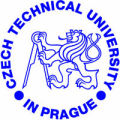Keynote Speaker

Prof. Giancarlo Guizzardi
Free University of Bolzano-Bozen
Conceptual and Cognitive Modeling Research Group
Bolzano-Bozen, Italy
Conceptual Models as Ontological Contracts
In the years to come, we will experience an increasing demand for building Reference Conceptual Models in critical domains in reality, as well as employing them to address classes of problems, for which sophisticated conceptual distinctions are demanded. One of these key problems is Semantic Interoperability. Effective semantic interoperability requires an alignment between worldviews or, to put it more accurately, it requires the precise understanding of the relation between the (inevitable) ontological commitments assumed by different representations and the systems based on them (including sociotechnical systems).
In this talk, I argue that, in this scenario, Reference Conceptual Models should be seen as Ontological Contracts, i.e., as precise descriptions that explicitly represent the Ontological Commitments of a collective of stakeholders sharing a certain worldview. I then elaborate on a number of theoretical, methodological and computational tools required for building these meaning contracts. Firstly, I discuss the importance of Formal Ontology in the philosophical sense and, in particular, I elaborate on the role of foundational axiomatic theories and principles in the design of conceptual modeling languages and methodologies. Secondly, I discuss the role played by three types of complexity management tools that are derived from these foundational theories, namely: Ontological Design Patterns (ODPs) as methodological mechanisms for encoding these ontological theories; Ontology Pattern Languages (OPLs) as systems of representation that take ODPs as higher-granularity modeling primitives; and Ontological Anti-Patterns (OAPs) as structures that can be used to systematically identify possible deviations between the set of valid state of affairs admitted by a model (the actual ontological commitment) and the set of state of affairs actually intended by the stakeholders (the intended ontological commitment). Finally, I illustrate the role played by a particular type of computer-based visual simulation approach in the validation of these reference models as well as for anti-pattern elicitation and rectification.
Short Bio
Giancarlo Guizzardi has a PhD (with the highest distinction) from the University of Twente, The Netherlands. He is currently a Professor of Computer Science at the Free University of Bolzano-Bozen, Italy, where he leads the Conceptual and Cognitive Modeling Research Group (CORE). He is also a founder and senior member of the Ontology and Conceptual Modeling Research Group (NEMO), in Brazil. Two well-known results associated with his research program are: the ontologically well-founded version of UML termed OntoUML, which has been adopted by many research, industrial and government institutions worldwide; and the foundational ontology UFO (Unified Foundational Ontology), which has influenced international standardization activities in areas such as Software Engineering and Enterprise Architecture (e.g., the Archimate Standard). He has been active for more than two decades in the areas of Ontologies, Conceptual Modeling and Enterprise Semantics. Over the years, he has conducted many technology transfer projects in large organizations in sectors such as Telecommunications, Software Engineering, Digital Advertisement, Product Recommendation, Digital Journalism, Complex Media Management, Energy, among others. Moreover, he has authored more than 220 peer-reviewed publications in the aforementioned areas, which have received more than 12 paper awards. He has also played key roles in international conferences such as general chair (e.g., FOIS), program chair (e.g., ER, FOIS, IEEE EDOC, EEWC) and keynote speaker (e.g., ER, BPM, BIR), as well as in international journals such as associate editor (Applied Ontology) and member of editorial boards (e.g., Requirements Engineering Journal, Semantic Web Journal). Finally, he has been a member of the executive council and is currently a member of the Advisory Board of the International Association for Ontology and its Applications (IAOA).
robert.pergl@fit.cvut.cz
Copyright © 2008-2016 AIS SIGMAS






